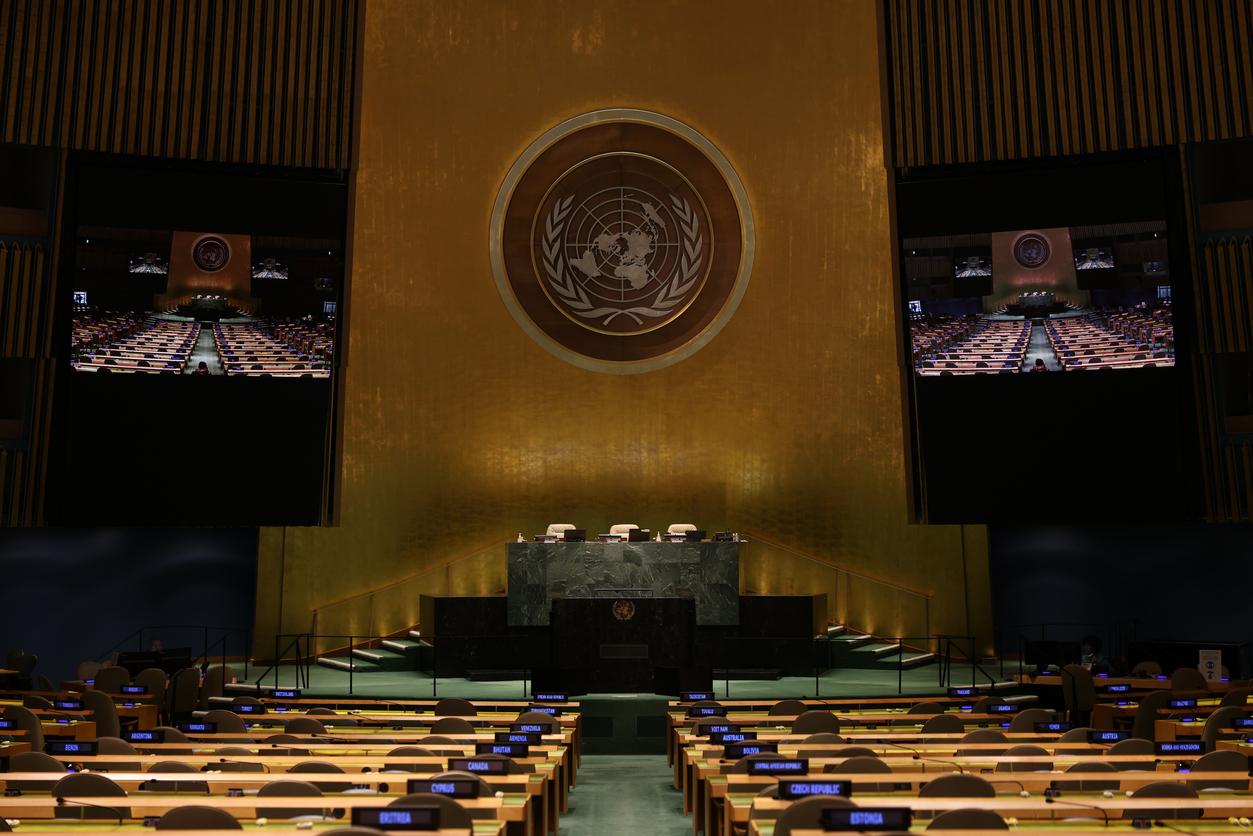Blog
With the US retreat from anti-corruption, what next for the global anti-corruption consensus?

On 26 June 2024, the US Supreme Court issued a ruling in the case of Snyder v. USA, interpreting the scope of federal anti-bribery law. The court ruled – by six to three – that a US$13,000 payment made to Mr Snyder, then Mayor of Portage, Indiana, by a truck company following the award of government contracts totalling over US$1 million, did not constitute bribery under federal law (US Code Title 18, Section 666). The court concluded that payments made to government officials after official action has occurred are not covered by the statute and should instead be regarded as gratuities or tips, rather than bribes.
This decision has sparked debate among anti-corruption specialists, such as myself, as it evidently legalises bribery. And while the potential negative implications for the perception of public integrity and the regulation of interactions between private entities and public officials of this decision were enormous, other recent developments in the US have been even more disconcerting.
An unprecedented crisis for the international anti-corruption consensus
The decision in Snyder v. USA was perhaps a herald of the more shocking developments that we have witnessed since President Trump was sworn in earlier in 2025. On 11 February, we woke up to the unbelievable news that Trump had suspended the enforcement of the Foreign Corrupt Practices Act (FCPA). The Executive Order, titled ‘Pausing Foreign Corrupt Practices Act Enforcement to Further American Economic and National Security’, directs the Attorney General to cease initiating new FCPA investigations for 180 days (with exceptions at the Attorney General’s discretion).
Existing investigations are also under review, in an effort to align the caseload with the administration’s focus on transnational criminal organisations and cartels. This suggests that the FCPA will still be used in future to target corrupt practices linked to these serious criminal entities, but routine enforcement will be paused and overall anti-corruption efforts reduced. This could embolden anyone involved in unethical business practices that fall outside those specific focus areas.
The FCPA is, of course, not without problems (as U4 has demonstrated) but it has long been held up as an important piece of legislation for global anti-corruption. As a precursor to the OECD Anti-Bribery Convention, it was also important in building the general international consensus – and recognition – that corruption is a critical problem (see for example Wrage and Wrage 2005).
This shift away from FCPA enforcement (which came while the world was still digesting the 27 January announcement that USAID, another important player in anti-corruption, was to be suspended) could put that global anti-corruption consensus in jeopardy. It signals that bribery is now an acceptable part of doing business, and it is likely to embolden kleptocrats, money launderers, and fraudsters everywhere. This could have severe implications across the world, especially in developing countries where corruption is more common.
Why the reversal?
The fact sheet issued by the White House upon the announcement of FCPA suspension states clearly:
American national security depends on America and its companies gaining strategic commercial advantages around the world, and President Trump is stopping excessive, unpredictable FCPA enforcement that makes American companies less competitive….
This rationale aligns with the broader context of global economic competition, particularly the ongoing technological and industrial rivalry between the US and China, which remains intense. In the electric vehicle market, China has gained a competitive edge with lower-cost and well-engineered cars, prompting the US and European Union (EU) to introduce tariffs to protect domestic industries. Similarly, the US embargo on exports of high-grade microchips and processors to China was aimed at slowing China’s advancements in AI. However, developments such as DeepSeek suggest that China is capable of building competitive AI tools with lower costs and processing power. Thus, the broader technological rivalry remains dynamic and far from settled.
Against this backdrop, the suspension of FCPA enforcement could have implications for US competitiveness across various industries, including technology. By reducing regulatory constraints on American firms operating internationally, the move may allow US companies to compete more aggressively in global markets. With key US political figures having material interests in the US tech sector, shifts in regulatory policy could play a role in shaping future competitive dynamics.
What next for anti-corruption? Collaboration and the important role of China
The FCPA was an important instrument in strengthening global anti-corruption efforts. Its enactment spurred the adoption of similar legislation worldwide and led to the emergence of a vast compliance sector that became integral to corporate governance across the globe. It gave impetus for those that wanted to put corruption on the international agenda, leading to the 1997 OECD Anti-Bribery Convention and the 2005 United Nations Convention Against Corruption (UNCAC). It remains to be seen how other UNCAC States Parties, OECD members, and countries that have passed similar laws to the FCPA, such as the UK’s Bribery Act, will react to these developments. Will the centre hold with the US and FCPA out of the picture?
Anti-corruption must continue to be a global priority given the widespread impact of corruption and the strong opposition to it expressed in citizen surveys, such as Transparency International’s Global Corruption Barometer.
Recent protest movements in Kenya and Nigeria highlighted the connections between corruption, foreign debt, and their own economic hardship, with demonstrators linking corruption and governance challenges in their countries to international financial structures that disadvantage the the Global South.
Similarly, research I conducted with colleagues in Madagascar found that local perceptions of corruption were closely tied to their economic conditions and the way international conservation efforts interacted with local governance and resource management to their detriment.
An important question is the potential role of China, the world’s second-largest economy, in filling the vacuum left behind by the US in shaping global anti-corruption policy going forward. China has already developed its own anti-corruption systems, both domestically and internationally, through financial mechanisms and soft power. An example of this financial mechanism is the leaked loan agreement for the development of Entebbe Airport in Uganda, which stipulates that profits generated by the airport are deposited into an escrow account to service the debt. Some policy analysts have cited this as evidence of predatory lending practices, often described as ‘debt-trap diplomacy’, a characterisation rejected by Chinese authorities. Alternatively, this arrangement could be seen as a risk management strategy designed to safeguard investments from financial mismanagement and corruption.
Other reservations concerning China include the fact that it has a middling position in the global anti-corruption rankings. Its anti-corruption efforts are seen as politically motivated, or as purges in the west. Yet, U4’s workstream on China includes research that reveals the importance of a nuanced understanding of Chinese approaches towards corruption. For instance, China takes seriously the fact that ‘corruption undermines the reputation of Chinese development finance and poses a risk to the BRI [Belt and Road Initiative].’
China has also had some degree of success in preventing corruption in foreign development projects, and in several cases has proved more effective than international finance institutions at reducing corruption in its financing. For example, a U4 Issue showed that Chinese-backed hydroelectric projects were less susceptible to corruption than World Bank-funded projects because of Chinese safeguards and diplomatic pressure.
Concluding thoughts: Volatility, multilateralism, and collaboration
Given the current climate, a nuanced approach to China’s role in anti-corruption efforts is crucial for maintaining global collaboration in this area. At a time when US leadership appears absent, this could help reinvigorate international consensus on combating corruption.
The planned closure of USAID has removed a key player in international development, while the suspension of the FCPA has weakened an important pillar of global anti-corruption efforts. It is therefore imperative that the rest of the world presses forward to sustain momentum on this critical issue.
While this period of uncertainty in international relations is concerning, it also presents opportunities. As the US government appears to be favouring a unilateral approach in international relations, China’s Foreign Minister Wang Yi’s calls for multilateralism and the rule of international law at the Munich security conference, seem promising.
Historically, European nations have also favoured multilateralism and international legal frameworks over unilateral approaches, including in tackling corruption. As the US shifts towards more unilateral action, China, Europe, and other nations may find it both strategic and necessary to deepen cooperation on development and other global priorities. This should include re-building a broader multilateral consensus to strengthen global anti-corruption efforts.
Disclaimer
All views in this text are the author(s)’, and may differ from the U4 partner agencies’ policies.
This work is licenced under a Creative Commons Attribution-NonCommercial-NoDerivatives 4.0 International licence (CC BY-NC-ND 4.0)

